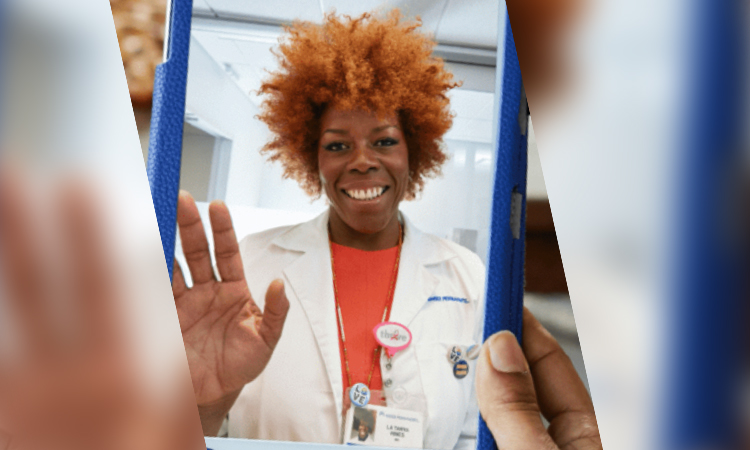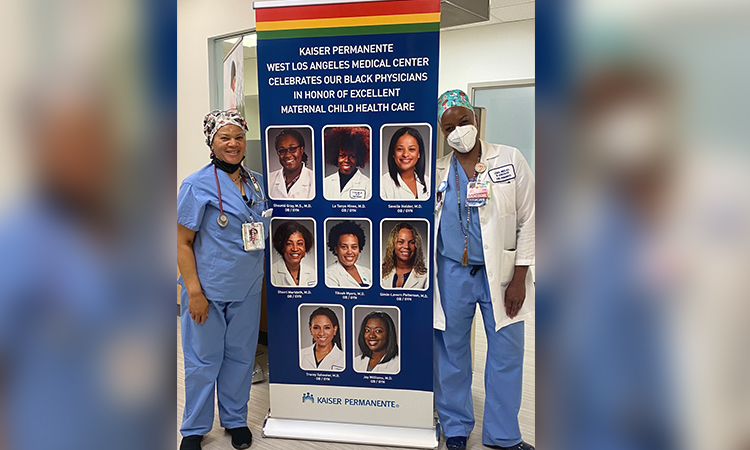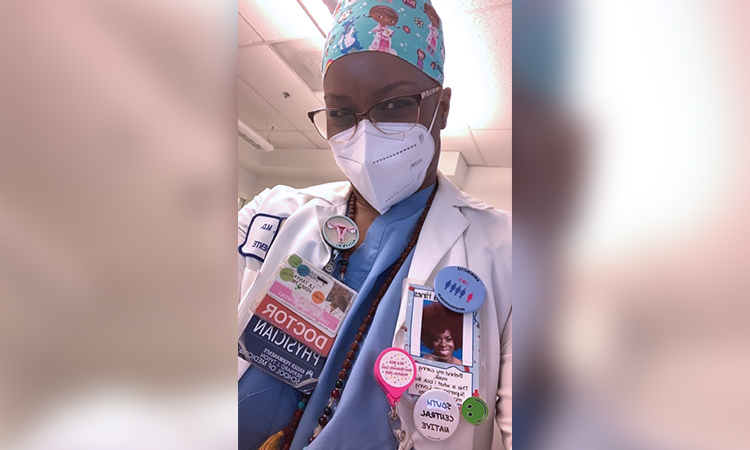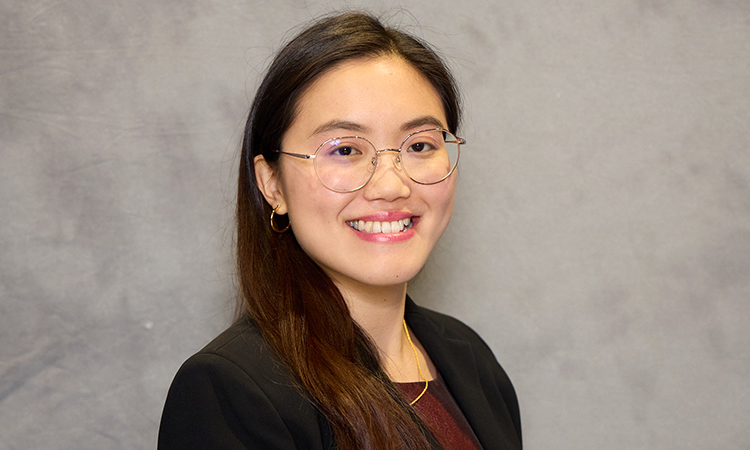We asked Dr. Hines to share her thoughts on the OB/GYN specialty and modern-day healthcare. She detailed her journey to medicine and provided advice for aspiring physicians and more. The interview below has been lightly edited for length and clarity.
What most interested you in the OB/GYN medical specialty?
“Well, my mother had a stroke at 27. I was eight years old and having been born and raised in a community that is in South Central Los Angeles and underserved, I was directly integrated into the healthcare system because my mother was so young when she had the stroke. [My inclination towards] OB/GYN is because my mother had a stroke taking high-dose birth control pills and smoking. She didn’t know that she had an underlying history of elevated blood pressure, which runs throughout our entire family. And unfortunately, when we think about the dosing of birth control pills back in the 1970s, it was a much, much higher dose than it is now. Back then, she was taking about three times as much as today’s standard dose, and working and being a single parent and smoking … it was just a recipe for disaster. I watched my mother learn how to walk, how to talk, and how to take care of herself again.
“She was an amazing woman, and unfortunately, she passed away at 57, so that was just about 15 years ago. But she taught me a lot about the importance of service, independence, and advocacy. My grandparents are exceptional and pioneering people who left the South to come to California and they really believed in education. I am an only child, so I don’t have any siblings. It’s just about me. And so, I learned about the opportunities with education from my grandmother who was the first black woman to attend Bishop College in Texas, so she really believed in education and was kind of ahead of her time. My mother had five other brothers and none of them went to college. Most of them never even graduated from high school, but my mother listened to my grandmother. She believed in what she was trying to say, and even as a single parent, she did everything she could to create a very independent life herself. She bought her own home at [the age of] 24 and had that home before she passed away. She used that home to finance my education and she was just amazing.”
What is most rewarding to you in your medical practice?
“Believing that I am making a difference in the lives of the people that I see … that my education, my experiences are changing lives, improving lives, and impacting lives. I see that every day, which is why I’m at this location in the medical office building here in Baldwin Hills, Crenshaw, which is around the corner from where I was born and raised in Los Angeles. And it is a $1 million investment in this community, obviously not just for profit, but what the resources and finances of Kaiser Permanente can do. And I am a part of that, as [well as] many other physicians of color who are committed to taking care of this community, which is more than 30 percent of our patient population at Kaiser Permanente West Los Angeles.”
What are a few unexpected or less well-known aspects of practicing in OB/GYN? What surprised you when you started?
“The lack of health literacy that people did not, and still don't, know about their anatomy, as we assume they do. Grown women [sometimes do not know] truly where babies come from. How to prevent unintended pregnancies. The connection between being as healthy as possible in the pregnancy and the outcome. They have a strong advocate in the physicians who practice OB/GYN for addressing what we consider to be the social determinants of health. It's not just gynecology and all things non-pregnant, but it's also all things OB and pregnant and the impact that your environment and your village have. And it is surprising that many patients don't know that [physicians] can be very strong supporters of that.”
What are the top three tips you would provide aspiring physicians?
“Number one: Be prepared and understand you may be the only one in a patient's life at a particular time that makes a huge impact on their quality of life.
“A great medical student anticipates that this is not an easy journey. Two years of biology, chemistry, physics, and math is a lot of work, and it's not just taking the classes, but it's doing well because you may be the one person who finds the diagnosis, treats it effectively, or recognizes a symptom that keeps that patient alive. So, those two things. Be prepared and then recognize your importance in the lives of the people that you take care of.
“Number two: Enjoy the ride.
“There are a lot of ups and downs as you become your best self as a medical student but know that this is just the beginning of a process for the rest of your life as an excellent physician. And know that all things will not always be easy. Part of what makes you a good doctor is that you are going to run into adversity and you're going to have the tools necessary to be successful. And just as [students] think the SAT test was so hard when they took it, well, next is the MCAT. And they thought that was so hard. And then they get to USMLE parts 1, 2, and 3. That was so hard. And then they get to the board exams. It doesn't get easier. You just get better and recognizing that makes you, I believe, the best physician that you can be.
“Number three: Recognize your importance and the impact you make in patients’ lives.
“There are no small interactions with patients. There are no routines.”
While a patient may come in for a routine pap smear and preventative healthcare, Dr. Hines said a physician should always be inquisitive and document anything else of note observed during the exam.
Much has been written about different types of healthcare practices and how patients often feel as though they're going through the motions at the doctor’s office within a very specified amount of time. In addition, doctors are often so busy that they can lose sight of connection with patients. What can you say about your work with Kaiser Permanente that allows you to dig deeper to create a connection with your patients to reveal more about what is happening with their health?
“Well, I think we learn tools as Kaiser Permanente partners and we invest in the beginning. There's a whole protocol we [as physicians] learned to make sure that we are meeting the needs of the patient, so investing in the beginning – that means stopping for a moment, recognizing [a patient] as a human, finding something that you guys have in common – you do that before you walk in the room, read the chart—so once you’ve read the chart, maybe you guys have the same birthday, maybe they talked about their children with the previous exam - make a connection.
“Once you make the connection, sit down. I don't care how busy you are. If you sit down patients feel listened to … and when you do listen, listen carefully. Try not to interfere. Try not to talk. Just listen, and then once you're listening, start the exam.”





